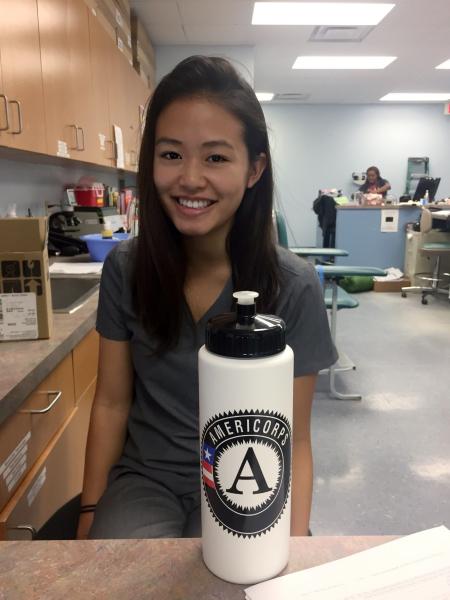The Value of Patient Advocacy
 A few months ago, I began my service term with the National Health Corps at the Sulzbacher Center. Sulzbacher is the largest comprehensive case management center for homeless men, women, and children in Jacksonville. I serve within Sulzbacher’s medical clinic by enrolling patients in Prescription Assistance Programs (PAP). PAPs allow patients to receive essential, often expensive, medications directly from pharmaceutical companies that they could not otherwise afford.
A few months ago, I began my service term with the National Health Corps at the Sulzbacher Center. Sulzbacher is the largest comprehensive case management center for homeless men, women, and children in Jacksonville. I serve within Sulzbacher’s medical clinic by enrolling patients in Prescription Assistance Programs (PAP). PAPs allow patients to receive essential, often expensive, medications directly from pharmaceutical companies that they could not otherwise afford.
Because the population we serve at Sulzbacher is low-income, primarily uninsured, and often experiencing homelessness, I often see how factors such as a lack of transportation, a permanent address, and access to a telephone are huge barriers to quality healthcare. My service term reminds me constantly of the value of patient advocacy, especially for those who may not have the resources to fully advocate for themselves.
Patients not having a permanent address can complicate the process of getting their PAP medications. I often call companies to explain why the patient lives at the same location as their provider because their application was initially rejected. For patients without social security numbers, I may need to acquire extra documentation such as work visas and green cards. This can be difficult especially when patients have limited access to phones or transportation. For patients that have difficulty getting to us, we go to them. Every week, Sulzbacher’s HOPE team rides out to meet patients where they are and bring healthcare to them. We can also get signatures and documentation from them this way.
 Sometimes, a patient’s case is unique and requires special attention. Three weeks ago, I spoke with a patient with “Behcet’s disease,” a genetic condition causing painful inflammation all over the body. This patient was flown to another city to see a specialist for the disease, who prescribed her a medicine intended for psoriasis. She had been taking the it for several months when her insurance suddenly stopped covering it due to her rare diagnosis. She was understandably frustrated, and anxious that her disease would progress. Throughout the process of applying for this medication for her through PAP, I ran into similar issues. The company refused to provide it even after I explained that she had to be prescribed medicine “off-label” because her condition was so rare. To help navigate her through this obstacle, I found the contact of the Behcet’s disease specialist she had seen and got him in contact with her provider at Sulzbacher. Together, they were able to refer her to a local specialist to prescribe a treatment plan covered through PAP.
Sometimes, a patient’s case is unique and requires special attention. Three weeks ago, I spoke with a patient with “Behcet’s disease,” a genetic condition causing painful inflammation all over the body. This patient was flown to another city to see a specialist for the disease, who prescribed her a medicine intended for psoriasis. She had been taking the it for several months when her insurance suddenly stopped covering it due to her rare diagnosis. She was understandably frustrated, and anxious that her disease would progress. Throughout the process of applying for this medication for her through PAP, I ran into similar issues. The company refused to provide it even after I explained that she had to be prescribed medicine “off-label” because her condition was so rare. To help navigate her through this obstacle, I found the contact of the Behcet’s disease specialist she had seen and got him in contact with her provider at Sulzbacher. Together, they were able to refer her to a local specialist to prescribe a treatment plan covered through PAP.
Every day at Sulzbacher, I am encouraged by cases such as these because I see how much the staff at Sulzbacher are willing to go out of their way to serve each individual patient. It’s unfair that patients are routinely denied access to quality healthcare or medication because of their socioeconomic or citizenship status. I am glad to be serving with an organization that advocates for these patients and refuses to let them slip through the cracks.

This blog post was written by a NHC FL AmeriCorps member, MIndy.
Mindy serves at the I.M. Sulzbacher Center as a Patient Navigator.